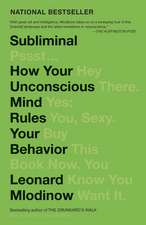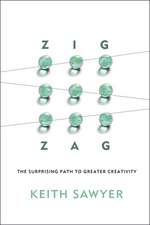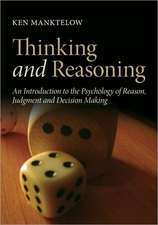Behaviour (Psychology Revivals): Psychology Revivals
Autor D. E. Broadbenten Limba Engleză Hardback – 7 noi 2013
What distinguishes the behaviourists is their insistence on exact scientific verification. Introspection may suggest a theory but only objective experiments will be admitted as evidence in its favour. The observation of how a rat behaves in a maze may seem a far cry from the study of mankind but it has the supreme advantage that what is observed can be exactly recorded and analysed. Progress by such methods is slow but what is discovered is much less likely to be upset by future discoveries than is work based on subjective judgments.
Some of the results already obtained are fruitful and suggestive. Mr Broadbent’s treatment of rewards and punishments is most striking, both for the importance of the results and for the precision of the methods by which they are obtained. To reward a child for doing something or to punish him for abstaining might seem to be equally effective methods, to be distinguished only on ethical grounds. Mr Broadbent, however, sets out modern evidence and opinion about the means by which each method operates and so demonstrates that there exist sharp and general rules governing the situations in which each is likely to be effective. He describes the state of ‘neurotic’ conflict produced when a reward and a punishment are both associated with the same object and again a series of simple, controlled experiments throws light on a basic human problem.
The science of behaviour is closely linked with other branches of research such as the theory of information and the development of electronic and mechanical ‘brains’, and this common field of research promises exciting results. Mr Broadbent shows how behaviourism has grown towards such sophisticated developments from the beginnings of such men as Watson and Pavlov.
To any intelligent reader this book will give not only the pleasure of watching a series of brilliantly devised experiments gradually giving birth to a new and important science, but also the insight which comes from examining such basic concepts as memory and learning, of discovering how much of what we think we know is merely an unexamined assumption, and of being forced to think again in precise terms. For anyone willing to make this effort Behaviour is an exceptionally rewarding book.
| Toate formatele și edițiile | Preț | Express |
|---|---|---|
| Paperback (1) | 329.88 lei 6-8 săpt. | |
| Taylor & Francis – 8 mai 2015 | 329.88 lei 6-8 săpt. | |
| Hardback (1) | 524.78 lei 6-8 săpt. | |
| Taylor & Francis – 7 noi 2013 | 524.78 lei 6-8 săpt. |
Din seria Psychology Revivals
- 9%
 Preț: 766.15 lei
Preț: 766.15 lei - 9%
 Preț: 940.08 lei
Preț: 940.08 lei -
 Preț: 311.41 lei
Preț: 311.41 lei - 18%
 Preț: 647.76 lei
Preț: 647.76 lei -
 Preț: 246.16 lei
Preț: 246.16 lei - 9%
 Preț: 834.98 lei
Preț: 834.98 lei - 5%
 Preț: 218.55 lei
Preț: 218.55 lei -
 Preț: 175.18 lei
Preț: 175.18 lei - 9%
 Preț: 1460.66 lei
Preț: 1460.66 lei -
 Preț: 245.87 lei
Preț: 245.87 lei -
 Preț: 338.39 lei
Preț: 338.39 lei - 5%
 Preț: 265.78 lei
Preț: 265.78 lei -
 Preț: 341.55 lei
Preț: 341.55 lei -
 Preț: 386.31 lei
Preț: 386.31 lei - 25%
 Preț: 992.63 lei
Preț: 992.63 lei - 44%
 Preț: 724.77 lei
Preț: 724.77 lei - 17%
 Preț: 290.61 lei
Preț: 290.61 lei - 26%
 Preț: 989.34 lei
Preț: 989.34 lei - 25%
 Preț: 552.60 lei
Preț: 552.60 lei - 26%
 Preț: 820.71 lei
Preț: 820.71 lei - 26%
 Preț: 846.09 lei
Preț: 846.09 lei - 18%
 Preț: 1053.92 lei
Preț: 1053.92 lei - 18%
 Preț: 1061.19 lei
Preț: 1061.19 lei - 25%
 Preț: 964.75 lei
Preț: 964.75 lei - 18%
 Preț: 1164.44 lei
Preț: 1164.44 lei - 26%
 Preț: 850.59 lei
Preț: 850.59 lei - 26%
 Preț: 847.73 lei
Preț: 847.73 lei - 26%
 Preț: 594.33 lei
Preț: 594.33 lei - 25%
 Preț: 825.21 lei
Preț: 825.21 lei - 25%
 Preț: 1049.90 lei
Preț: 1049.90 lei - 26%
 Preț: 1046.65 lei
Preț: 1046.65 lei - 18%
 Preț: 906.17 lei
Preț: 906.17 lei - 26%
 Preț: 848.15 lei
Preț: 848.15 lei - 5%
 Preț: 1423.10 lei
Preț: 1423.10 lei - 26%
 Preț: 819.48 lei
Preț: 819.48 lei - 18%
 Preț: 1055.51 lei
Preț: 1055.51 lei - 18%
 Preț: 1284.97 lei
Preț: 1284.97 lei - 26%
 Preț: 819.48 lei
Preț: 819.48 lei - 26%
 Preț: 1299.62 lei
Preț: 1299.62 lei - 25%
 Preț: 1022.07 lei
Preț: 1022.07 lei - 26%
 Preț: 847.73 lei
Preț: 847.73 lei - 25%
 Preț: 964.32 lei
Preț: 964.32 lei - 26%
 Preț: 819.90 lei
Preț: 819.90 lei - 18%
 Preț: 906.17 lei
Preț: 906.17 lei - 26%
 Preț: 849.84 lei
Preț: 849.84 lei - 5%
 Preț: 1411.19 lei
Preț: 1411.19 lei - 26%
 Preț: 622.59 lei
Preț: 622.59 lei - 18%
 Preț: 1062.55 lei
Preț: 1062.55 lei - 18%
 Preț: 1063.44 lei
Preț: 1063.44 lei - 18%
 Preț: 876.27 lei
Preț: 876.27 lei
Preț: 524.78 lei
Preț vechi: 703.29 lei
-25% Nou
Puncte Express: 787
Preț estimativ în valută:
100.43€ • 102.85$ • 83.54£
100.43€ • 102.85$ • 83.54£
Carte tipărită la comandă
Livrare economică 19 martie-02 aprilie
Preluare comenzi: 021 569.72.76
Specificații
ISBN-13: 9781848723351
ISBN-10: 1848723350
Pagini: 216
Dimensiuni: 138 x 216 mm
Greutate: 0.45 kg
Ediția:1
Editura: Taylor & Francis
Colecția Psychology Press
Seria Psychology Revivals
Locul publicării:Oxford, United Kingdom
ISBN-10: 1848723350
Pagini: 216
Dimensiuni: 138 x 216 mm
Greutate: 0.45 kg
Ediția:1
Editura: Taylor & Francis
Colecția Psychology Press
Seria Psychology Revivals
Locul publicării:Oxford, United Kingdom
Public țintă
Postgraduate, Professional, and UndergraduateCuprins
Foreword. 1. Why Behaviour? 2. The Evolutionary View3. Anxiety and Conflict4. Reasoning in the White Rat5. Fact and Theory6. A Scalpel in the Works7. The Springs of Action8. The Next Step.Appendix.Suggestions for Further Reading.Index.
Descriere
Originally published in 1961, this was a time when for most laymen the science of behaviour hardly existed. Few people had any clear idea of its methods, its history or, above all, its significance. The work of the behaviourists was almost unknown, yet this was a science which offered the hope of profound insights into the human mind. Broadbent shows how behaviourism had grown towards such sophisticated developments from the beginnings of such men as Watson and Pavlov. The reissue of this title is an opportunity for people to see how Broadbent’s early work influenced the future of psychology.


















